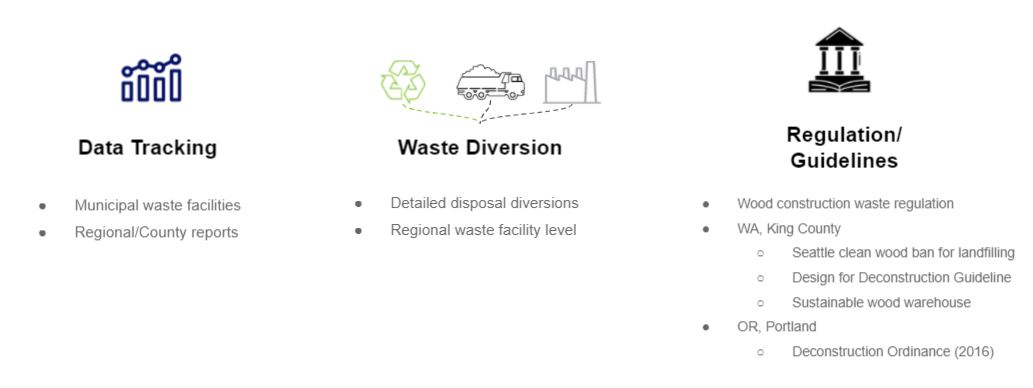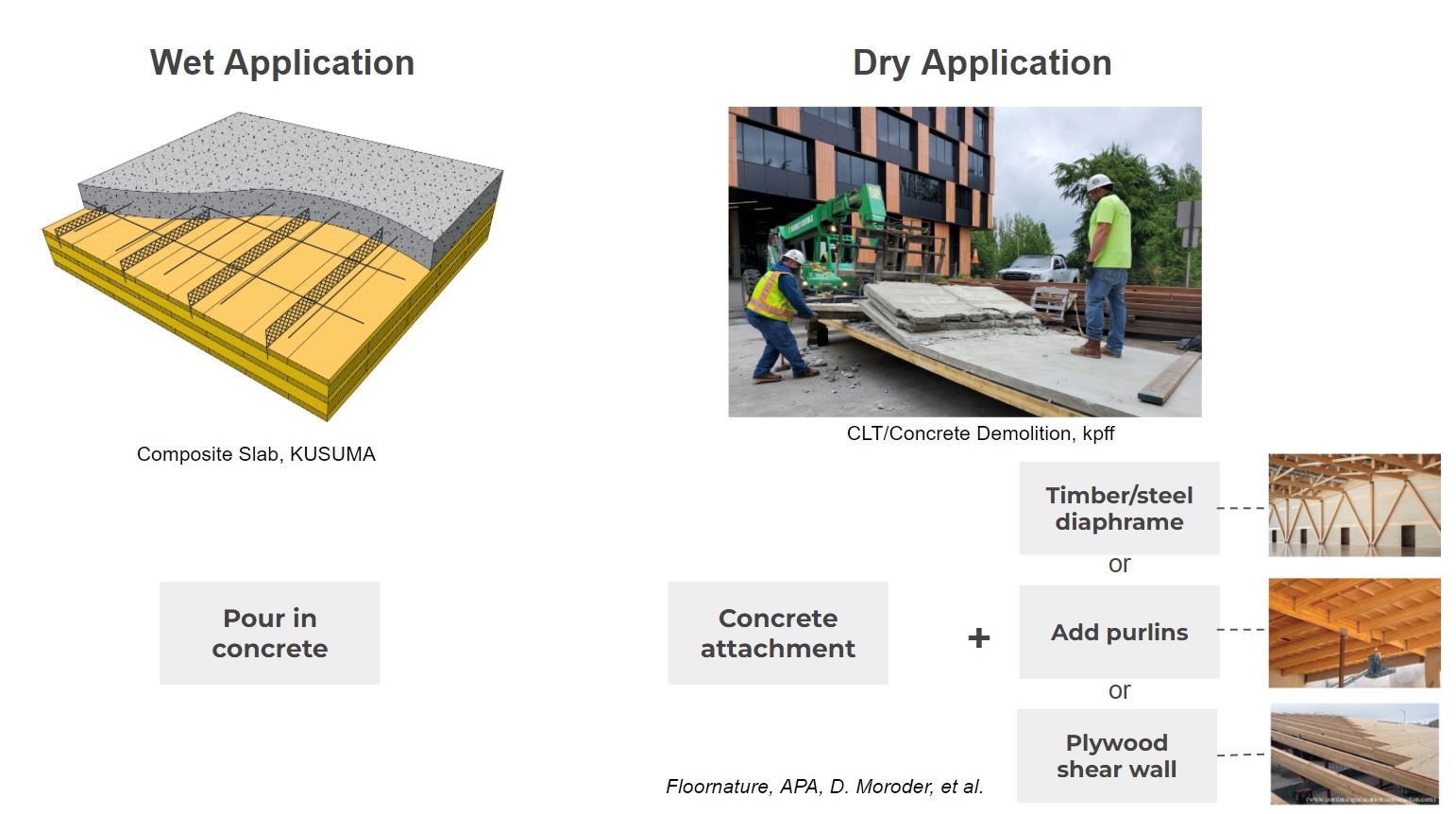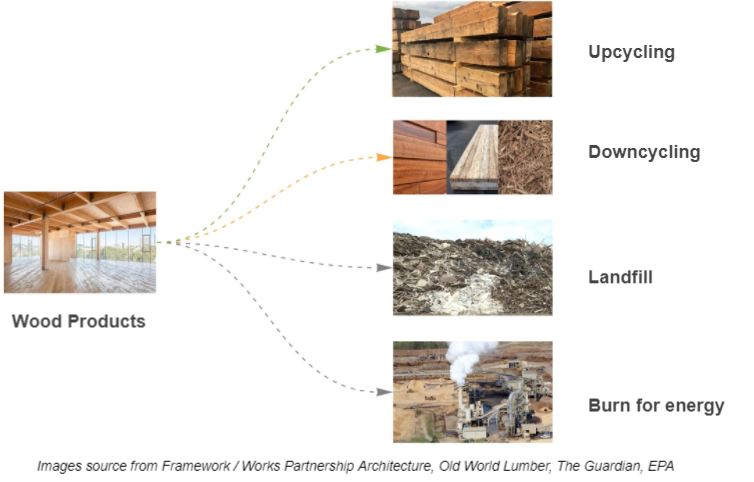February 18, 2022
Biogenic Carbon Accounting Method for Upstream Forest and End of Life: A Regional Approach
ARC Fellow: Chuou Zhang
Degree Program: M Arch, MS Construction Management
Faculty Advisors: Indroneil Ganguly, Environmental and Forest Sciences, 2020– 2022; Tomás Méndez Echenagucia, Architecture, 2020– 2021; Hyun Woo “Chris” Lee (2020)
Firm: ZGF
Firm Advisors: Marty Brennan and Jacob Dunn
Project dates: Autumn 2020 – Spring 2022
Read the Project Plan
Read the Metropolis article
Read the Final Report
Watch the Presentation
More about the project:
The open-source UpStream Forestry Carbon + LCA Tool that was developed during ARC 2020-21 integrates the impact of different forestry practices and product end-of-life scenarios with current LCA data. For ARC 2021-22, the development team has identified four key areas of improvement: forest factors, specified wood product operations and transportation in raw material supply stage, end-of-life research around wood recycling and salvage, and developing the spreadsheet into a web-based application. The team’s proposal has been accepted for incubation with the Carbon Leadership Forum to advance research collaboration and methodology review.

Collecting wood disposal data from municipal level help us understand how wood is treated after deconstruction. Data tracking, waste diversion and regional regulation guide us to design a more suitable wood disposal scenarios. (Source data: King County)

Comparing deconstruction challenges in wet application and dry applications.

There are two main approaches apart from landfill and burn for energy- upcycle and downcycle. Downcycling is the common disposal pathway for wood products, such as finishing, stairs MDF boards. However, salvage lumber can be upcycled to make CLT panel and other engineering wood products.Framework / Works Partnership Architecture, Old World Lumber, The Guardian, EPA
